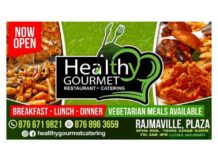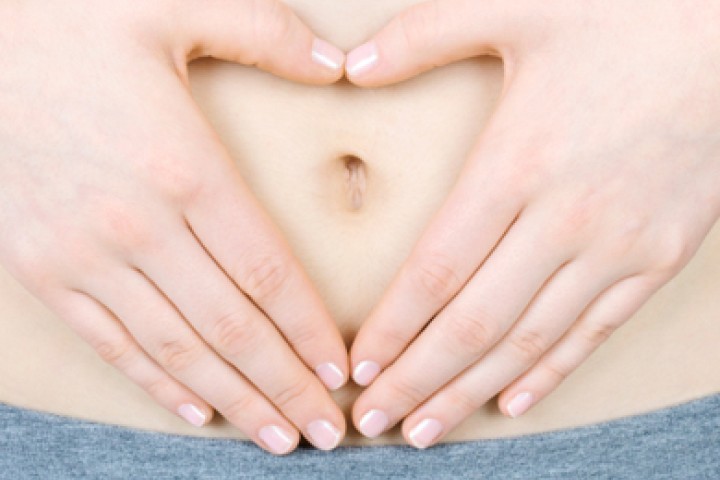Stay Hydrated

There’s almost nothing better for your digestive system and your overall health than water. Just like not eating enough fiber, drinking too little water slows down your digestive system significantly because a harder stool is more difficult to pass. Drink plenty of water and other fluids, especially after you exercise. Stay hydrated with this recipe for electrolyte water. You’ll know when you’re getting enough water when your pee is clear all day long.
Move It
Physical activity speeds up digestion, increases blood flow to all your organs, and stimulates muscles in the GI tract, helping your organs work more efficiently. It can even tone the walls of your colon! Aim for 30 minutes of exercise every day. Try walking, cycling, swimming, using an elliptical trainer, or climbing the stairs in your house. If you’re feeling ambitious, try Dr. Oz’s
Limit Fats

Beyond keeping us from fitting into our favorite jeans, fatty and fried foods are hard to digest, slow the process way down, and tax a system that would otherwise run well. Looking for ways to cut back? Try choosing meats that are lower in fat such as chicken and turkey and go for lean cuts of pork. Switch from whole or reduced-fat dairy to low-fat or non-fat, and replace butter and margarine with olive oil.
Eat More Fiber
Make fiber a regular part of every day, and you will be regular every day. Fiber is the traffic cop that helps keep everything moving smoothly in your intestines. It slows down digestion and absorption so the glucose in food enters your bloodstream more slowly, keeping your blood sugar at a more even level. Additionally, fiber increases the weight and size of your stools, and by softening them, fiber helps them pass quickly through your system. Without fiber, you get the gas, gridlock, and occasional discomfort of constipation. Instead of a fiber supplement, try loading up on these 50 fiber-rich foods.
Healthy Weight

Studies show that even small weight gains are linked to GERD (gastroesophageal reflux disease), a condition in which the valve between the stomach and esophagus doesn’t close completely, allowing stomach acid back into the esophagus. Losing even a few pounds eases some of the pressure in your abdominal area and can help reduce heartburn and other discomfort.
Take Your Time
Nobody likes to be rushed, and your digestive system is no exception. Some of the key ways your body sends the signal to your brain that you’ve eaten enough take a little time to kick in. Slow down and chew each bite at least 20 times. That gives your stomach plenty of time to prepare to properly digest the nutrients you are giving it, and allows your body and brain to tell you when you’ve had enough. Also, try to avoid eating in front of the TV or the computer. Studies show that when people are distracted while eating (such as by the big game or the latest post from a Facebook friend), they eat significantly more than when they are at a dinner table, focusing on their food.
Try Probiotics

Probiotics are live microorganisms (in most cases, bacteria) that are similar to the beneficial microorganisms naturally found in the human gut. These “good bacteria” are used to prevent and alleviate many different conditions but particularly those that affect the gastrointestinal tract. They are particularly good at regulating the amount of healthy bacteria in your system and normalizing bowel movements. In order to reap the full benefits of taking probiotics, some experts recommend eating probiotic-rich foods or taking a probiotic supplement for a minimum of two weeks — try it and see if you notice a difference!
Bloating 101
Intestinal bacteria produce gas when foods haven’t yet travelled through the small intestine. If gas particles aren’t released right away, the stomach expands like a balloon. Although overeating is the most known cause for bloating, some people battle the bloat daily – even if they haven’t polished off an oversized meal. If this sounds like you, the triggers may not be how much you’re eating, but what you’re eating. Try to limit your consumption of sodium, starches and artificial sweeteners as they are common culprits.









































